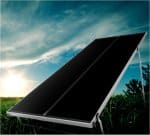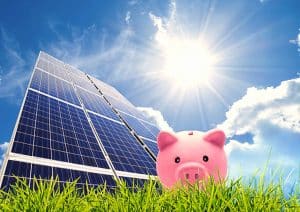It looks like a solar panel and it is – of sorts; but instead of using solar power to generate electricity, the Carocell from Australian company F Cubed purifies and desalinates water.
Australia is not short on water – just the right type of water poses a problem. There are vast reserves of water under the landscape, laying on the surface and surrounding our island nation. But like the oceans that surround us, much of the water inland is brackish or otherwise contaminated and unusable for industrial, crops and livestock purposes, let alone human consumption. Major pipelines are sometimes built to supply potable water to these areas, disturbing the local environment; or water is trucked in – an expensive and emissions intensive exercise.
Where traditional desalination plants exist, they are expensive to operate and also energy hungry.
F Cubed have designed a desalination system that relies entirely on the sun for power. Additionally, the process does not use toxic chemicals or even filters; just direct solar energy in the form of heat from the sun; refining a method that has been used in various forms for many years.
The Carocell modules increase the temperature of the water on the solar collector, speeding up the evaporation process. The evaporated water condenses, drips down and is collected, leaving only leaving only fractionalised salts and other purities behind. The system also has applications for mining companies to recycle wastewater and the fractionalised salts (sodium chloride and magnesium chloride) can be used for dust suppression at mining operations.
The low-cost modular solar panels can be ground or roof mounted and F Cubed states the system offers increased efficiency (65% with peak efficiencies above 80%) over other solar distillation products (30 – 40%). The smallest panel offered by the company weighs 16 kilograms and is able to output 16 litres of water a day in temperatures of 20 degrees Celsius; more in hotter conditions.
The first commercial scale application of the technology is being constructed for the District Council of Ceduna to supply drinking water to the area and is expected to produce approximately 200 million litres of drinking water per year.
F Cubed’s solar desalination solution has also captured interest elsewhere, including the United Nations Office of Project Services and the World Bank.







































